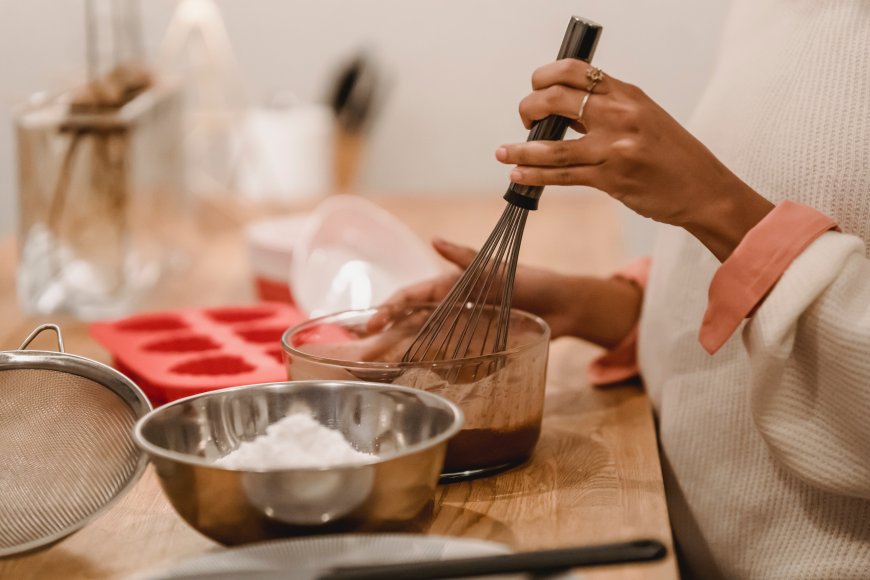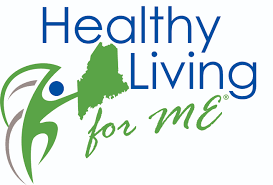Exploring Delicious and Healthy Dairy-Free Substitutes for Baking and Cooking

Introduction:
Dairy products play a significant role in baking and cooking, providing richness, moisture, and flavour to various dishes. However, finding suitable alternatives can be a game-changer for those who follow a dairy-free diet due to lactose intolerance, allergies, or personal preference. Thankfully, many dairy-free options are available that can effortlessly replace traditional dairy ingredients. By incorporating dairy-free substitutes, you can still enjoy the pleasures of culinary creations without compromising on taste, texture, or nutrition. In this comprehensive guide, we will explore various dairy-free alternatives for cooking and baking, including substitutes for dairy in general, non-dairy butter replacements, yoghurt substitutes, and dairy-free margarine and butter options.
Non-Dairy Milk Substitutes:
One of the key ingredients in many baking and cooking recipes is milk. Fortunately, there is an array of milk alternatives to baking:
a. Soy Milk: Soy milk is a popular dairy-free alternative with a creamy texture and neutral taste. It works well in both sweet and savoury recipes.
b. Almond Milk: With its subtly nutty flavour, almond milk adds a delicate touch to baked goods and savoury dishes. It is particularly suitable for recipes that require a light and subtle taste.
c. Oat Milk: It is known for its creamy texture and slightly sweet taste. It can be an excellent choice for baked goods, sauces, and creamy soups.
d. Coconut Milk: Rich and creamy, coconut milk brings a tropical flair to sweet and savoury dishes. It is particularly popular in curries, desserts, and smoothies.
Butter Replacements
Butter is a versatile ingredient that adds richness and flavour to various recipes. Luckily, there are dairy-free alternatives that work wonderfully as butter replacements:
a. Coconut Oil: Solid coconut oil can be used as a 1:1 replacement for butter in baking. It lends a subtle coconut flavour and helps maintain the desired texture in cookies, cakes, and pie crusts.
b. Vegan Margarine: Look for dairy-free or vegan margarine options specifically labelled as such. They can serve as a convenient substitute for butter in various recipes.
c. Avocado: Mashed ripe avocado can replace butter in brownies and cakes, providing a creamy texture and healthy fats.
Yoghurt Substitutes
Yoghurt adds moisture and tanginess to baked goods, but you can achieve the same results with these dairy-free alternatives:
a. Coconut Milk Yogurt: Made from coconut milk, coconut milk yoghurt is an excellent substitute for dairy-based yoghurt in baking recipes. It offers a creamy texture and a subtle coconut taste.
b. Almond Milk Yogurt: Almond milk yoghurt, derived from almond milk, is another viable option. It can be used as a 1:1 substitute in recipes that call for yoghurt.
c. Soy Milk Yogurt: Soy milk yoghurt provides a similar tanginess to dairy yoghurt, making it a suitable alternative for baking.
Cheese Substitutes
Cheese is a beloved ingredient in many savoury dishes. Thankfully, there are dairy-free alternatives that can mimic the taste and texture of traditional cheese:
a. Nut-Based Cheeses: Made from ingredients like cashews, almonds, or macadamia nuts, nut-based cheeses offer a rich and creamy texture that can be used in various recipes.
b. Vegan Cheese Brands: Many companies produce dairy-free vegan cheese options that come in various flavours and textures. Look for brands that use plant-based ingredients to achieve a cheese-like experience.
FAQs about Dairy-free alternatives to baking and cooking.
Q: What can I replace dairy with for cooking?
A: Cooking without dairy can be a manageable task. Here are some excellent substitutes for dairy in cooking:
Plant-based Milk: Soy milk, almond milk, oat milk, rice milk, and coconut milk are versatile options that work well in savoury and sweet recipes.
Coconut Cream: Thick and creamy, coconut cream can be used in curries, sauces, soups, and desserts to add richness and depth of flavour.
Nutritional Yeast: Nutritional yeast offers a savoury, cheesy flavour, making it an ideal replacement for cheese in sauces, dressings, and casseroles.
Cashew Cream: Soaked and blended cashews create a smooth and creamy texture, perfect for dairy-free cream sauces, desserts, and soups.
Q: What can I use instead of non-dairy butter in baking?
A: In baking, butter is a key ingredient for texture, moisture, and flavour. Fortunately, there are several alternatives available:
Coconut Oil: Virgin coconut oil works as a fantastic substitute for butter in many baking recipes, especially those that call for solid fat.
Vegan Margarine: Look for margarine brands specifically labelled dairy-free or vegan. These can often be used as a 1:1 replacement for butter in baking.
Applesauce or Mashed Banana: In some recipes, such as cakes and muffins, you can replace butter with unsweetened applesauce or mashed banana for added moisture.
Q: What is a non-dairy substitute for yoghurt in baking?
A: Yogurt is a popular ingredient in baking, lending moisture and a tangy flavour. Here are some dairy-free yoghurt alternatives:
Coconut Milk Yogurt: Made from coconut milk, this yoghurt alternative offers a creamy texture and a subtle coconut flavour.
Almond Milk Yogurt: Almond milk yoghurt is a smooth and creamy option that works well in baking recipes.
Soy Milk Yogurt: Soy milk yoghurt is another excellent substitute, providing a creamy consistency and tanginess similar to traditional yoghurt.
Q: Which Margarine is dairy-free?
A: Finding dairy-free Margarine requires careful label reading. Look for margarine products labelled "dairy-free" or "vegan" to ensure they are free from dairy ingredients. Some popular dairy-free margarine brands include Earth Balance, Melt Organic, and Miyoko's Creamery.
Q: What butter is dairy-free? What butter has no dairy in it?
A: While traditional butter is made from dairy, there are dairy-free butter alternatives available that offer a similar taste and texture:
Vegan Butter: Brands like Earth Balance, Miyoko's Creamery, and Melt Organic produce dairy-free butter substitutes from plant-based oils.
Coconut Oil Spread: Coconut oil spread is a versatile option used as a butter substitute in baking and cooking.
Olive Oil: Extra virgin olive oil can be used instead of butter in some recipes, particularly those that benefit from a fruity and rich flavour.
Q: Are all margarines dairy-free?
A: No, not all margarines are dairy-free. Margarine can be made with various ingredients, including dairy or dairy-derived products. It is crucial to carefully read the labels and look for Margarine specifically labelled as "dairy-free" or "vegan" to ensure they do not contain any dairy ingredients.
Q: Is mayonnaise dairy-free?
A: Mayonnaise is typically dairy-free, but it is essential to check the ingredients as different brands may have variations in their recipes. Traditional mayonnaise is made from eggs, oil, vinegar or lemon juice without dairy components. However, some speciality or flavoured mayonnaise products may contain added dairy or dairy-based ingredients, so it's always best to confirm by checking the label.
Q: What is the difference between dairy-free butter and Margarine?
A: Dairy-free butter and Margarine are plant-based alternatives to traditional dairy butter. While they serve similar purposes in cooking and baking, there are some differences:
Ingredients: Dairy-free butter is typically made from plant-based oils such as coconut, olive, or soybean. It often includes other natural ingredients like emulsifiers and flavourings.
On the other hand, Margarine can be made from a blend of vegetable oils, water, emulsifiers, and sometimes dairy-free ingredients like plant-based milk or flavours.
Consistency and Flavor: Dairy-free butter aims to replicate the taste, texture, and richness of dairy butter more closely, offering a flavour profile similar to traditional butter.
Margarine often has a milder flavour and a softer texture, making it easier to spread.
Q: Are eggs considered dairy?
A: No, eggs are not considered dairy. Dairy refers specifically to products derived from milk. Eggs, on the other hand, are considered part of the protein food group. They come from chickens or other birds and are not classified as dairy.
Q: Is yoghurt considered dairy?
A: Yoghurt is considered dairy because it is made from milk. Yoghurt is produced by fermenting milk with live bacterial cultures, transforming the lactose (milk sugar) into lactic acid, giving yoghurt its distinctive tangy flavour and thick texture.
Q: What foods are dairy-free?
A: Various foods are naturally dairy-free or can be found in dairy-free versions. Some examples of dairy-free foods include:
Fruits and vegetables
Grains and cereals (e.g., rice, oats, quinoa)
Nuts and seeds
Plant-based milk (e.g., almond milk, soy milk)
Dairy-free cheese alternatives
Dairy-free ice creams and frozen desserts
Non-dairy yoghurts
Meat, poultry, and fish (without added dairy-based sauces or coatings)
Legumes (e.g., beans, lentils)
Q: Does bread have dairy?
A: Generally, bread does not contain dairy. Basic bread ingredients typically include flour, water, yeast, and salt, which are dairy-free. However, it's essential to read the labels or inquire about specific bread brands or types, as some speciality or artisan bread may incorporate dairy or dairy-derived ingredients, such as milk powder or butter, for added richness or flavour. It's always best to check the ingredient list to ensure the bread is dairy-free if you have dietary restrictions or preferences.
Conclusion
Adopting a dairy-free lifestyle doesn't mean sacrificing the joy of baking and cooking. With a wide array of dairy-free alternatives, you can easily create delicious and wholesome dishes without compromising taste or texture. From plant-based milk to vegan butter substitutes and yoghurt alternatives, there is a dairy-free option for every need. Embrace the versatility of these alternatives and confidently explore the world of dairy-free baking and cooking.
Always check ingredient labels and experiment with alternatives to find the perfect dairy-free substitute for your favourite recipes. Happy cooking and baking!







